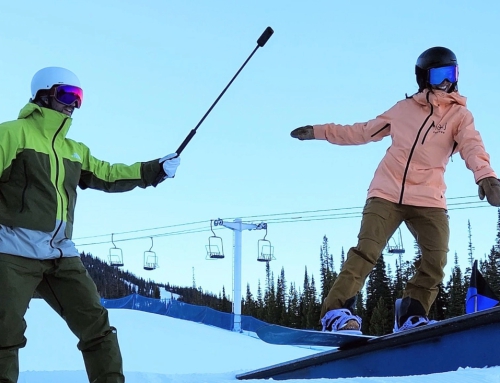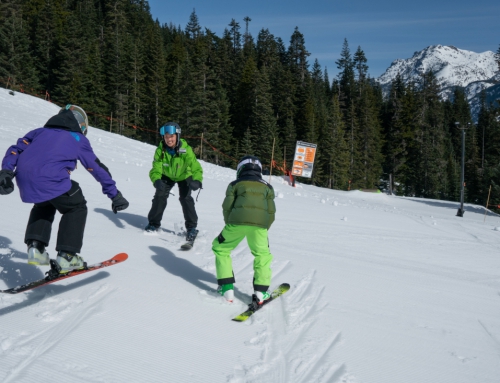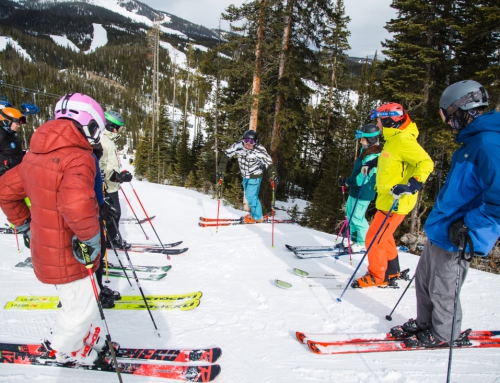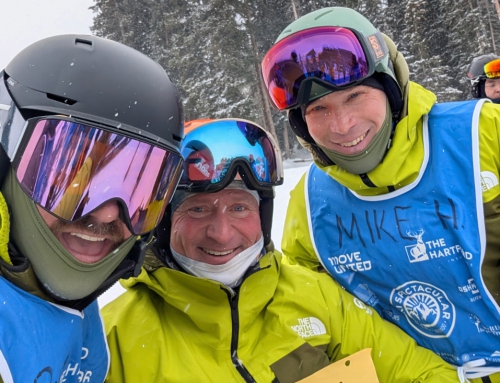32 Degrees: Member Profile Josh Smith
This article originally appeared in the Spring Issue of 32 Degrees magazine. You can read the entire magazine right here.
Josh Smith is a former U.S. Marine and the training manager for California’s Mammoth Mountain Ski & Snowboard School, a snowboard assessor, and the Western Freestyle Task Force Chair. He also earned Alpine Level II certification and Freestyle Specialist 2 and Children’s Specialist 2 credentials. Here, Josh shares how he uses a multi-discipline approach to teaching snowsports.
How did you get started snowboarding?
I grew up In Oceanside, California, loving surfing, skating, and dirt biking. My first experience skiing was at age three when my dad duct-taped my jeans to my ski boots and my gloves to my jacket so I didn’t lose anything. I tried snowboarding when I was eight, drawn to how the sport looked like power-sliding on a skateboard. It’s probably no surprise I spent most of the day tumbling down the hill and catching my edges. By the end of the day, I figured out how to make some turns and get some small air off a jump. In 2012 – at age 23 – I moved to Mammoth Lakes, California, and got to snowboard, or ski, every day.
What drew you to instructing and pursuing advanced certifications?
I like helping others achieve their goals and sharing my passion with others. My family is also full of teachers and coaches – my mother was a teacher, my sister is a professor, my uncle is the head coach of a college football team, and my dad is a therapist. From them, I have learned a lot about the traits of what makes a good teacher, and I hope to pass these lessons on to those I teach.
What do you find most enjoyable about snowsports?
You can have fun no matter the conditions or terrain, and snowsports take my mind to the present moment.
How do the four years you spent in the Marine Corps inform your approach to instructing?
During my time as a Marine, I learned about the importance of community and learned a lot about myself, what I can handle, what I needed help with, and what it takes to be an inspirational leader. I also built mental and physical strength.
I learned how to plan and always work toward improving or achieving a higher standard. Don’t rely on past accomplishments, as they are just practice for what you can accomplish in the future.
What draws you to freestyle? And progressions?
I love the creativity of freestyle. As AASI Snowboard Team Assis- tant and Development Coach Tony Macri says, “Style matters.” You probably don’t want to act like a robot. Having an individual style is important and it shows ownership of movements. Making something challenging look effortless is a beautiful sight.
As for progressions, I enjoy taking movements learned outside the park and bringing them to a feature within the park, or taking a learned trick from one feature to another. Progressions give you instant feedback – and for successful ones there is nothing better than landing a trick clean for the first time. Then you get to expand the trick by adding style and taking it to new places, or features.
How does helping other instructors fine-tune their skills impact how you enjoy the sport?
Fine-tuning your craft helps you move to a place of creativity. It helps you collaborate, adapt, and adjust to meet the needs of your students. Having more tools and the understanding for how to use them effectively makes your job easier and allows you to have more fun – which helps create a better learning environment for your students.
What are your professional goals?
I’m working to grow the training culture – motivating other instructors to train and advance their skills – at my home resort to help with building community, staff retention, staff development, and improving the guest experience.
I’m also working toward achieving my Alpine Level III certification. Being skilled in multiple disciplines will help me improve my ability to lead multi-discipline clinics at my resort. I want to be able to understand and convey ski and snowboard fundamentals at the highest level and have a trained eye for movement analysis. My goal is to receive the Western region’s endorsement to attend the next PSIA-AASI National Team Selection for snowboarding.







